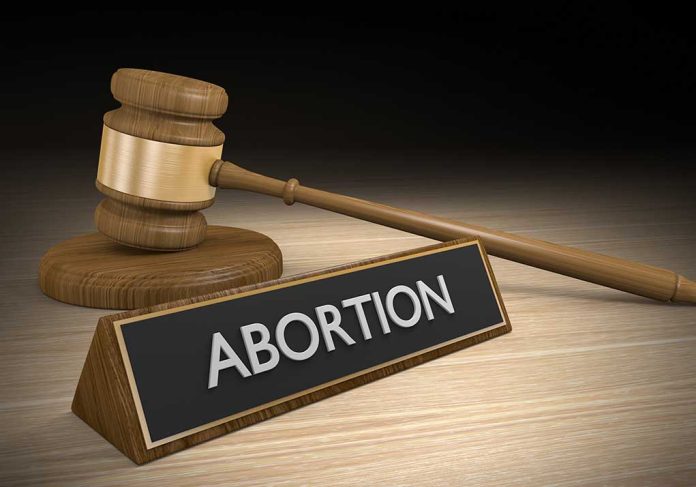
The Trump administration has requested dismissal of a lawsuit by Republican-led states attempting to restrict telehealth access to the abortion pill mifepristone, continuing a surprising legal position established under Biden’s leadership.
Key Takeaways
- President Trump’s administration asked a federal court to dismiss a lawsuit from Missouri, Idaho, and Kansas that challenges telehealth access to the abortion medication mifepristone.
- The Justice Department argues the states lack legal standing and filed their challenge after the six-year statute of limitations expired for the FDA’s 2016 actions.
- Despite the administration’s recent decision to drop a separate emergency abortion case in Idaho, they’ve maintained Biden-era defense of mifepristone accessibility.
- Medication abortions currently account for over half of all U.S. abortions, with 28 states imposing restrictions on mifepristone access.
- The lawsuit centers on FDA changes since 2016 that expanded access to mifepristone, including allowing telemedicine prescriptions and mail delivery.
Trump Administration’s Legal Position Mirrors Biden’s Approach
In a filing that surprised many political observers, President Trump’s Justice Department has asked a federal district court to dismiss a lawsuit challenging expanded access to the abortion pill mifepristone. The case, brought by Republican attorneys general from Missouri, Idaho, and Kansas, targets FDA decisions since 2016 that loosened restrictions on the medication, including allowing telemedicine prescriptions and mail delivery. Trump administration lawyers argue the states lack proper venue for their claims and missed the statute of limitations to challenge the FDA’s actions.
“At bottom, the states cannot keep alive a lawsuit in which the original plaintiffs were held to lack standing, those plaintiffs have now voluntarily dismissed their claims, and the states’ claims have no connection to this district,” Trump administration lawyers argued in their filing. Stated CBS News.
State Claims and FDA Regulatory History
The three Republican-led states claim the FDA improperly eased restrictions on mifepristone, a drug first approved in 2000 and used in medication abortions that now account for over half of all U.S. abortions. The lawsuit continues after US District Judge Matthew Kacsmaryk allowed the states to proceed following the withdrawal of the original plaintiffs. The states argue they have standing based on potential Medicaid costs for treating complications from mifepristone use, though the Trump administration disputes this claim.
“Regardless of the merits of the states’ claims, the states cannot proceed in this court,” administration lawyers stated firmly in their filing. Stated CBS News.
Contrasting Abortion Policy Approaches
The administration’s position on mifepristone access stands in contrast to its recent decision to drop a high-profile emergency abortion case in Idaho. In that separate legal battle, the Biden administration had argued that emergency room doctors must provide abortions when necessary to save a woman’s life or prevent serious health consequences under the Emergency Medical Treatment and Active Labor Act (EMTALA). The Trump administration’s withdrawal from that case signaled a potential shift in federal abortion policy.
“Their move to drop this case against Idaho I think shows what their true priorities are — and it is to push an anti-abortion political agenda rather than support the lives, health and well being of pregnant women and people, not just in Idaho but across the country because this case does have far-reaching impact,” said Brittany Fonteno.
Broader Implications for Abortion Access
The mifepristone case marks the Trump administration’s first position on this particular abortion medication challenge, though the Supreme Court previously rejected a bid to restrict access to the drug, citing a lack of legal standing by plaintiffs. Currently, 28 states impose various restrictions on mifepristone access, highlighting the patchwork nature of abortion regulations across the country. The continuation of the Biden-era defense for telehealth access to mifepristone represents a complex aspect of the administration’s developing abortion policy.
This mifepristone litigation occurs against the backdrop of dramatically changed abortion access following the Supreme Court’s overturning of Roe v. Wade in 2022. The administration’s decision to continue defending FDA policies that expand access to medication abortion through telehealth has significant implications for women in states with restrictive abortion laws who might otherwise lack access to reproductive healthcare services. How the courts ultimately rule on this case will impact the future availability of telehealth abortion medication access across America.



